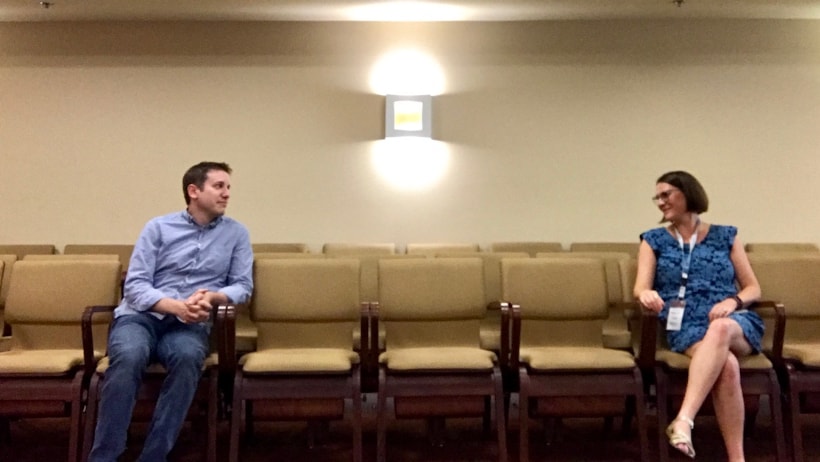*Next week I’ll be posting my Rosh Hashanah sermon, so this week I’ve included d’vrei Torah for the portions covering the next two weeks.
About a year after Matan was born, Duncan turned to me and said, “You know I love you now more than ever, but do you ever get the feeling these days that we’re more like roommates than husband and wife?” Never before were truer words spoken. It is so easy to get lost in the single-minded focus of the first year of a child’s life. Add to that one three-year-old, two crazy work schedules, and so much more, and we often ended up like two ships passing in the night. As we learned, unfortunately intimacy sometimes takes a backseat to necessary sleep, and a romantic anniversary lunch date can quickly turn into swapping calendars and talking about the kids instead of focusing on our relationship. A marriage, or any partnership that involves an intimate human connection and closeness, requires reaffirming the commitment. Commitment is not a one-time thing; it’s an active, ongoing process.

This applies not just to personal relationships, but to Torah and even to religion in general. Judaism as a faith is based on the relationships we maintain with one another, with text, and with God. Over the next two weeks we will read Parshat Nitzavim and Vayelech. These are the two parshiyot that often surround the High Holy days. Parshat Nitzavim reminds us of our free will in life and that the proper path is to repent, to follow the rules, and in general to be good people. Parshat Vayelech teaches us about Moshe’s process of transferring leadership to Joshua and the final words he will share as the leader of the Israelite nation.
The text begins in Parshat Nitzavim that we should “enter into the covenant of the Lord your God, which the Lord your God is concluding with you this day with its sanctions.” This is interesting timing. Didn’t the Israelite nation already affirm their commitment to God’s mitzvot and to God when they stood at Sinai and agreed “na’aseh v’nishma”? “All that God has said we will do and we will understand.” Why are we now asked to enter into the covenant once more?
Shneur Zalman, the 18th century rabbi of Liyadi, views this relationship as an intimate marriage. He teaches, “Just as a husband and wife need to reaffirm their commitment to each other when the early days of romantic attraction have given way to the day-to-day struggle to overcome accumulated disappointments, so too God and the people Israel need to reaffirm the covenant at this later date.”
Like new parents trying to maintain intimacy when daily life takes over, our relationship with God and with our faith community requires attention and intentionality in order to be maintained. These two parshiyot at the end of the Torah remind us that we are in need of constant work and engagement in order to find fulfillment in Judaism. What a perfect reminder in the new year that the text is there, the community is ready, and all it takes is intention.
-Rabbi Eve Posen
Source: Renewing Ourselves – Parshiyot Nitzavim and Vayelech 5778



